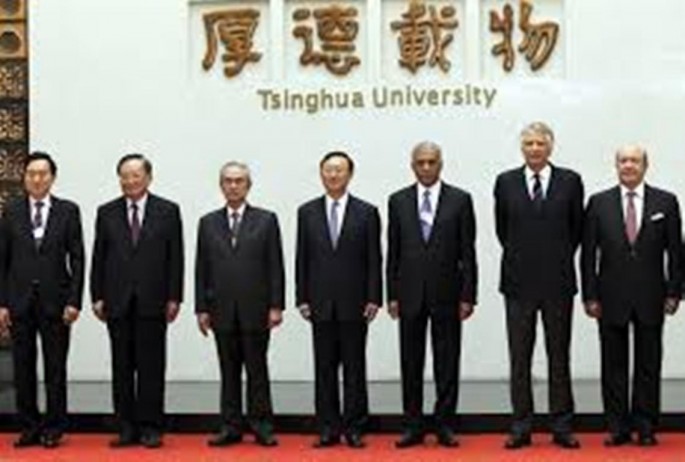Dedicated to developing an enhanced drug discovery and translational platform, Tsinghua University and the Bill & Melinda Gates Foundation (BMGF) will work together to establish the Global Health Drug Discovery Institute (GHDDI) in Beijing.
The president of Tsinghua University, Qiu Yong, and Co-chair of the Bill & Melinda Gates Foundation, Bill Gates, reached an agreement to co-establish the institute during a meeting in Davos, Switzerland. The two signed a memorandum of understanding.
According to Xinhua, the institute will be the first research and development center of its kind in China. It will deal with major diseases facing most developing countries, including China.
As partners, BMGF and GHDDI will offer fiscal support and assistance on institutional development, whereas Tsinghua University will invest different resources to support the institute, including talents and scientists, programs, facilities, and operation and management.
The partners released a statement indicating that GHHDI will enter a strategic alliance with the California Institute for Biomedical Research (Calibr), which is reputable in early drug discovery and development, Sina English reported. The collaboration will help the institute strengthen its skill and capacity in translational medicine.
Bill Gates said, "China has made incredible progress in reducing poverty and shares the foundation's commitment to harnessing advances in science and technology to address the critical health challenges affecting the world's poorest people."
Bill Gates added that they are happy about GHHDI's potential to drive creativity in universal health research and development, and look forward to working together with Tsinghua University on the continued work to address the world's most pressing health issues.
On the other hand, Qiu said, "The establishment of GHDDI is an important effort by Tsinghua University to advance pharmaceutical research and translational medicine."
It is reported that Tsinghua University had been establishing biomedical research since the 1980s, and had since made substantial progress. Adding on these developments, the university built the School of Pharmaceutical Sciences on Dec. 25, 2015, and designated pharmaceutical sciences as a new major development field in its 13 five-year plan.
Qiu emphasized that in line with the development of pharmaceutical sciences, Tsinghua University will channel its expertise in associated disciplines like chemistry and chemical engineering, material science, information technology, and medical engineering to improve its overall capabilities in biomedical research.
The initiative will probably enable the reform of pharmaceutical research and development systems in China and influence worldwide health.



























